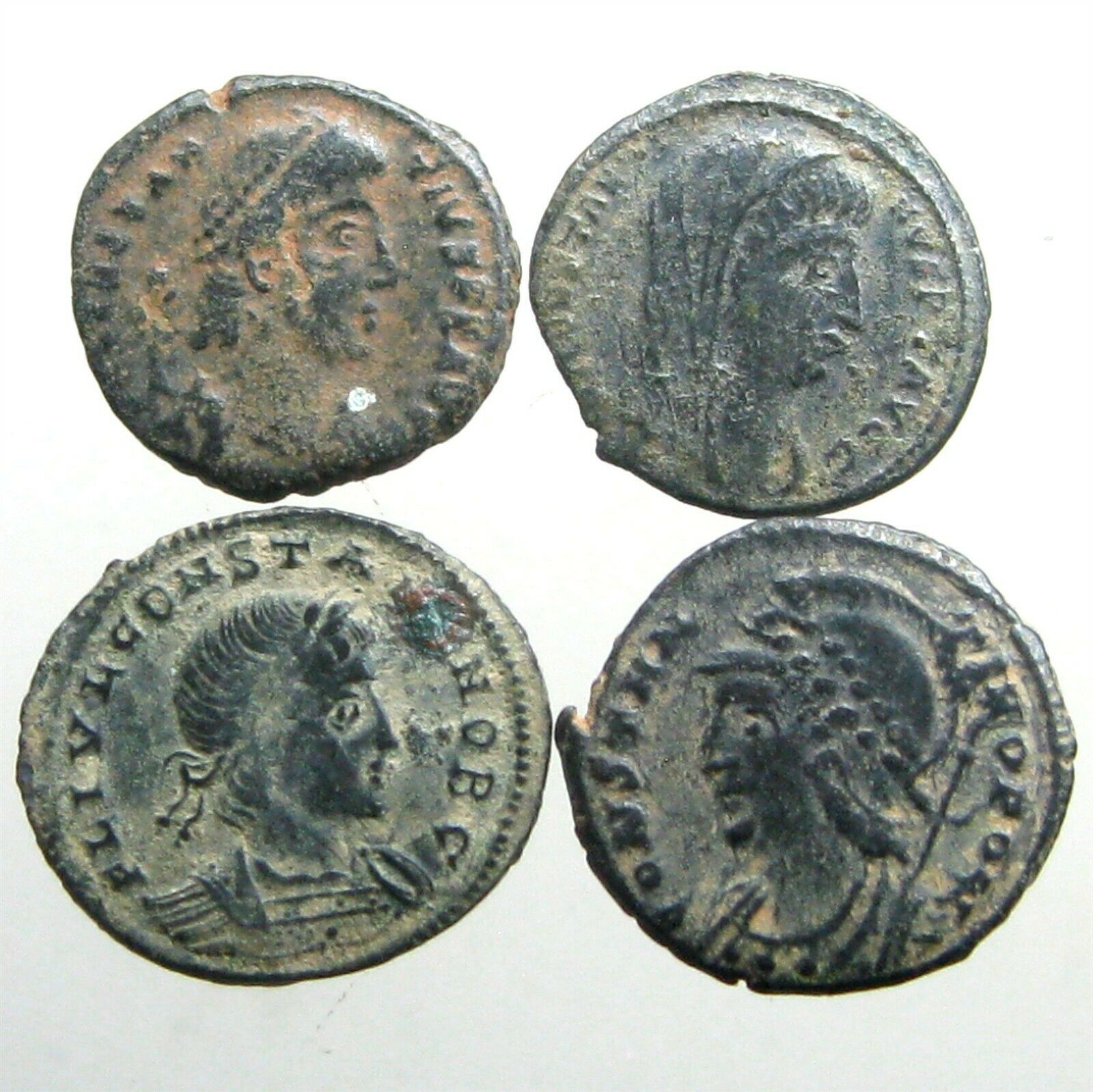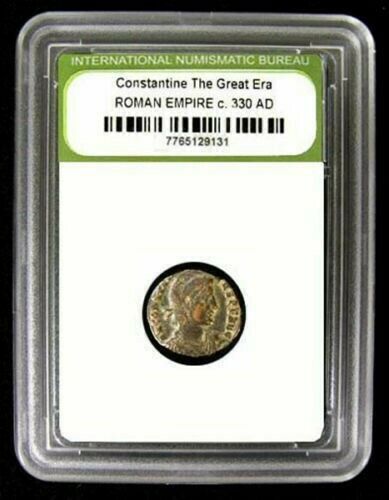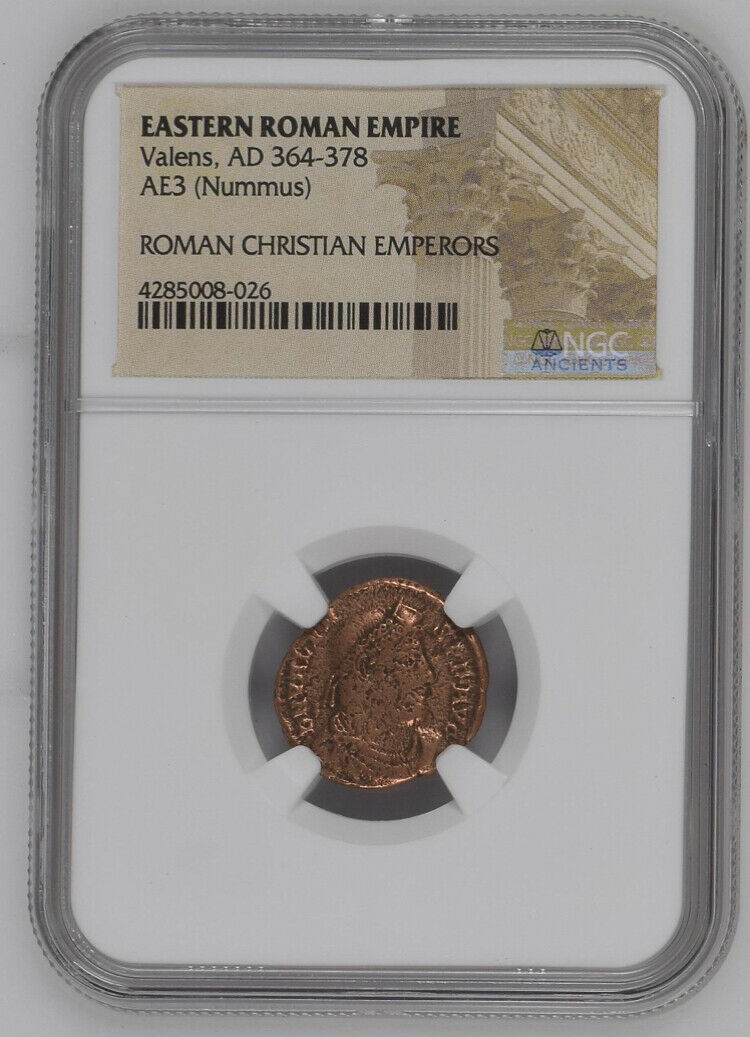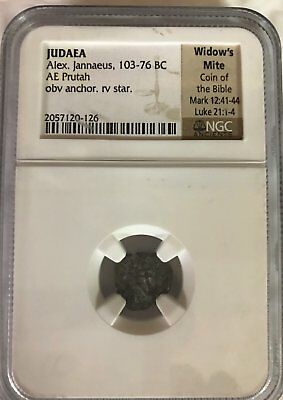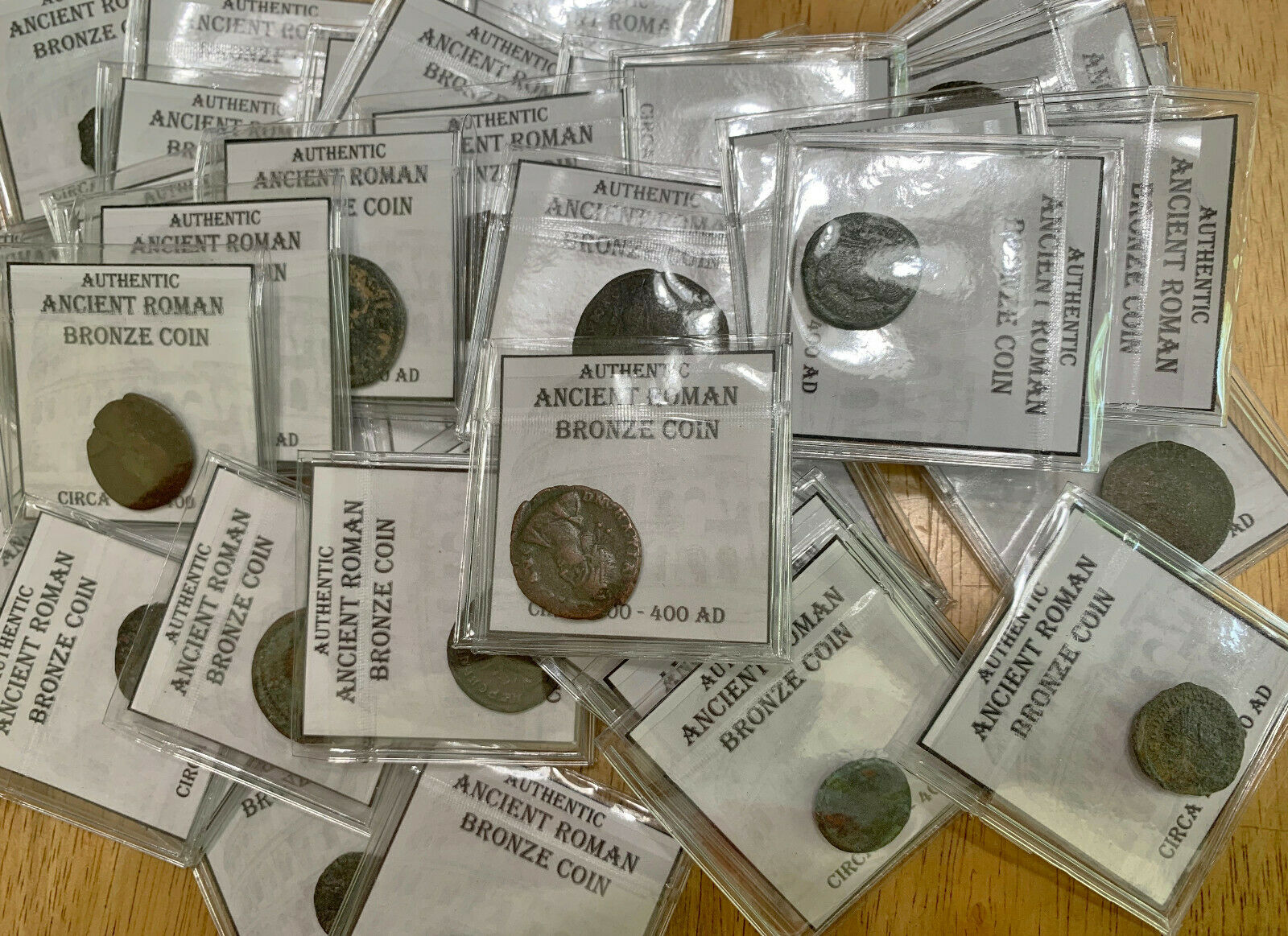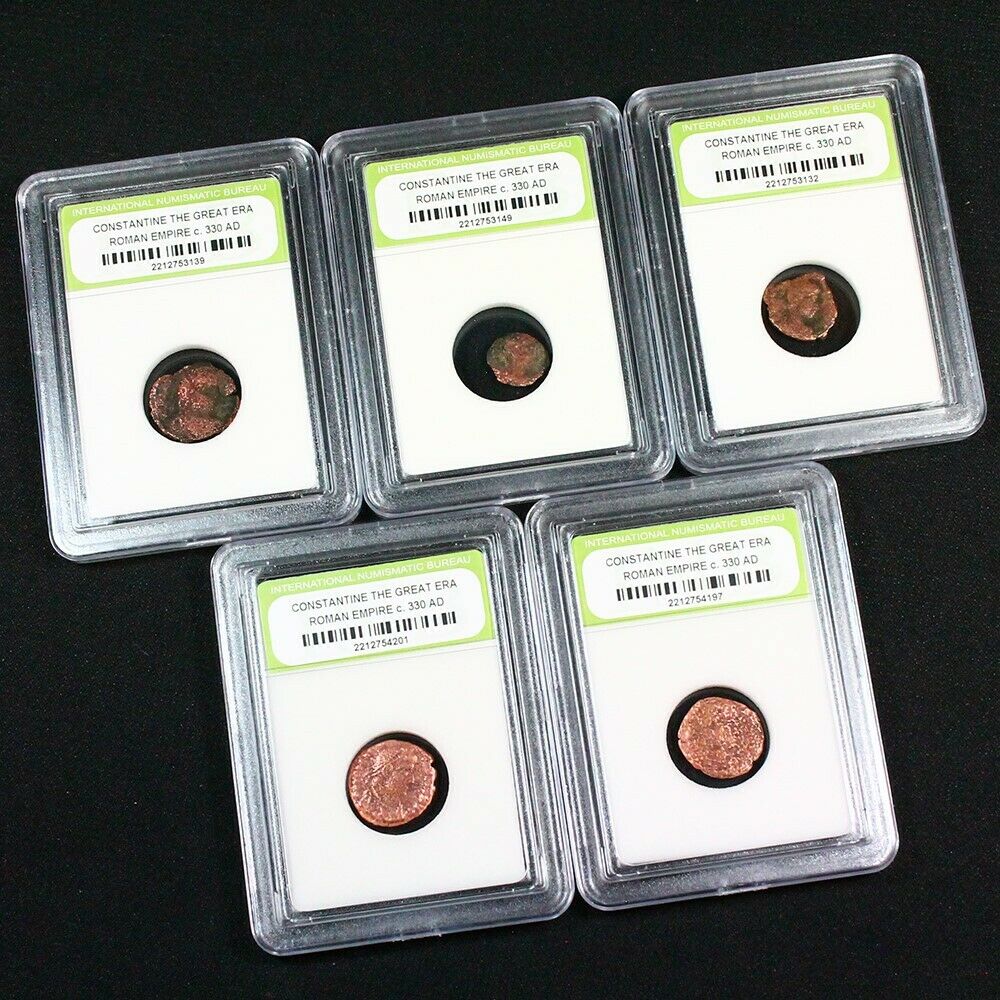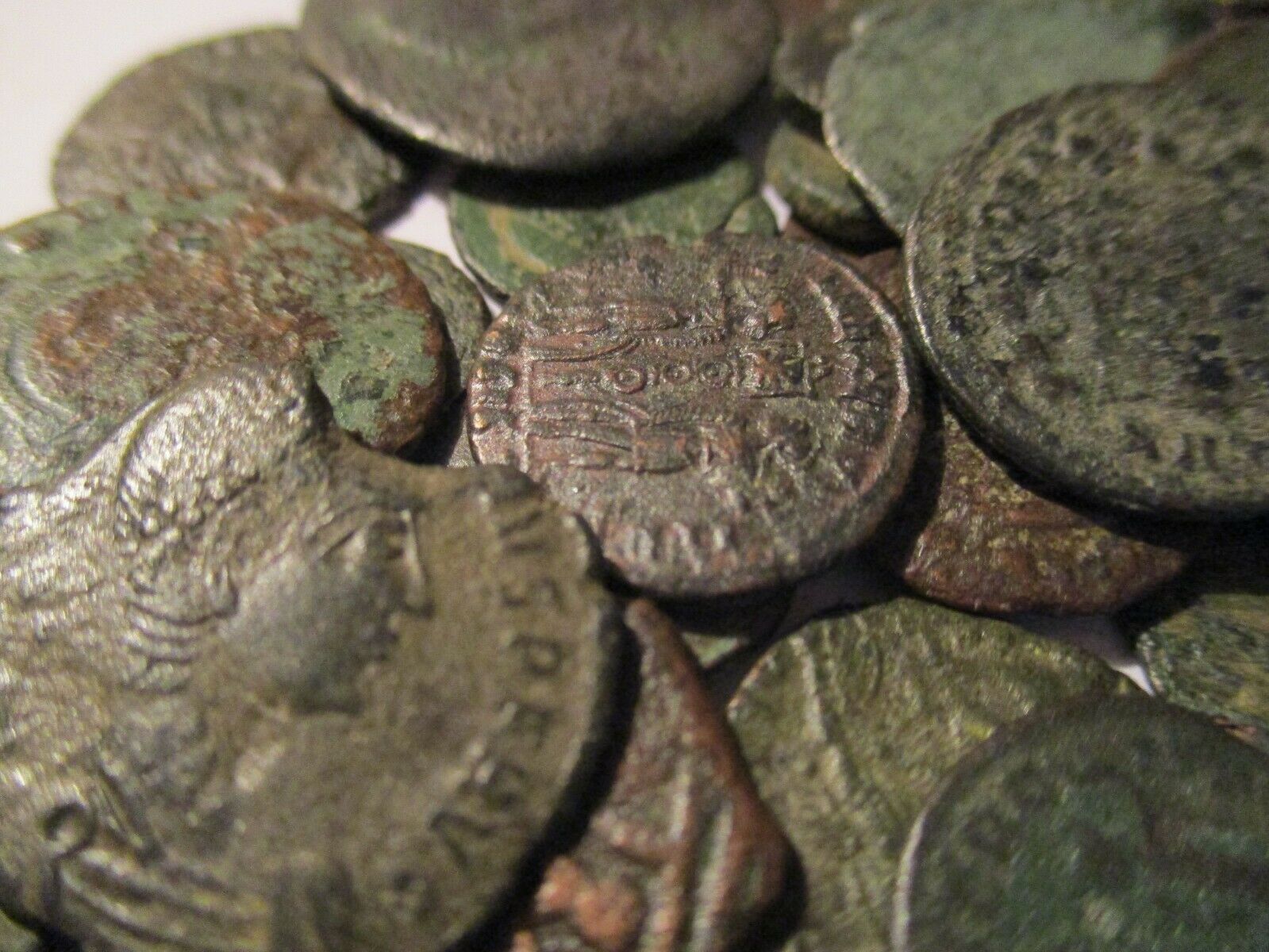-40%
LOT OF 4 NICE ROMAN BRONZE COINS____Practice Coin ID Skills___GREAT ROMAN EMPIRE
$ 0.52
- Description
- Size Guide
Description
18Y098FRASCATIUS ANCIENTS
4 BEAUTIFUL UNIDENTIFIED BRONZE COINS OF THE ROMAN EMPIRE FROM THE 4TH CENTURY AD .
A NICE LOT FOR SOMEONE WHO WANTS TO PRACTICE ROMAN COIN IDENTIFICATION SKILLS
THE 4 COINS IN THE PHOTO ARE THE EXACT 4 COINS THE BUYER WILL RECEIVE
THE SIZES RANGE FROM 15 - 18 MM AND 1.6 - 2.0 GRAMS.
ROMAN EMPIRE
The Roman Empire was the post-Roman Republic period of the ancient Roman civilization, with a government headed by emperors and large territorial holdings around the Mediterranean Sea in Europe, Africa and Asia. The city of Rome was the largest city in the world c.?100 BC – c.?AD 400, with Constantinople (New Rome) becoming the largest around AD 500, and the Empire's population grew to an estimated 50 to 90 million inhabitants (roughly 20% of the world's population at the time). The 500-year-old republic which preceded it had been severely destabilized in a series of civil wars and political conflict, during which Julius Caesar was appointed as perpetual dictator and then assassinated in 44 BC. Civil wars and executions continued, culminating in the victory of Octavian, Caesar's adopted son, over Mark Antony and Cleopatra at the Battle of Actium in 31 BC and the annexation of Egypt. Octavian's power was then unassailable and in 27 BC the Roman Senate formally granted him overarching power and the new title Augustus, effectively marking the end of the Roman Republic.
The imperial period of Rome lasted approximately 1,500 years compared to the 500 years of the Republican era. The first two centuries of the empire's existence were a period of unprecedented political stability and prosperity known as the Pax Romana, or "Roman Peace". Following Octavian's victory, the size of the empire was dramatically increased. After the assassination of Caligula in AD 41, the Senate briefly considered restoring the republic, but the Praetorian Guard proclaimed Claudius emperor instead. Under Claudius, the empire invaded Britannia, its first major expansion since Augustus. After Claudius' successor, Nero, committed suicide in AD 68, the empire suffered a series of brief civil wars, as well as a concurrent major rebellion in Judea, during which four different legionary generals were proclaimed emperor. Vespasian emerged triumphant in AD 69, establishing the Flavian dynasty. He was succeeded by his son Titus, who opened the Colosseum shortly after the eruption of Mount Vesuvius. His short reign was followed by the long reign of his brother Domitian, who was eventually assassinated. The Senate then appointed the first of the Five Good Emperors. The empire reached its greatest extent under Trajan, the second in this line.
A period of increasing trouble and decline began with the reign of Commodus. Commodus' assassination in 192 triggered the Year of the Five Emperors, from which Septimius Severus emerged victorious. The assassination of Alexander Severus in 235 led to the Crisis of the Third Century in which 26 men were declared emperor by the Roman Senate over a fifty-year time span. It was not until the reign of Diocletian that the empire was fully stabilized with the introduction of the Tetrarchy, which saw four emperors rule the empire jointly. This arrangement was ultimately unsuccessful, leading to a civil war that was finally ended by Constantine the Great, who defeated his rivals and became the sole ruler of the empire in 324. Constantine subsequently established a second capital city in Byzantium, which he renamed Constantinople. It remained the capital of the east until its demise. Constantine also adopted Christianity. Influenced by his adviser Mardonius, Constantine's nephew Julian unsuccessfully attempted to return the empire to paganism. Christianity became the official state religion of the empire under Theodosius I, who was the last emperor to rule over both the western and eastern halves of the Empire.
The dominion of the Western Roman Empire was gradually eroded by abuses of power, civil wars, barbarian migrations and invasions, military reforms, and economic depression. The Sack of Rome in 410 by the Visigoths and again in 455 by the Vandals accelerated the Western Empire's decay, while the deposition of the emperor, Romulus Augustulus, in 476 by Odoacer, is generally accepted to mark the end of the empire in the west.
The Roman Empire was among the most powerful economic, cultural, political and military forces in the world of its time. It was one of the largest empires in world history. At its height under Trajan, it covered 5 million square kilometers. It held sway over an estimated 70 million people, at that time 21% of the world's entire population. The longevity and vast extent of the empire ensured the lasting influence of Latin and Greek language, culture, religion, inventions, architecture, philosophy, law and forms of government over the empire's descendants.
A True Auction Environment –
Auctions start at $.99 with No Minimums and No Reserves.
FULL UNCONDITIONAL GUARANTEE OF AUTHENTICITY
If the buyer feels that the coin received is not as represented - just return the coin and the buyer will be fully reimbursed for the cost of the coin; the original shipping charge; and the cost to ship the coin back… No Questions Asked. If the buyer is not happy, please let me know, and I will do what I can to make it right.
NOTE: Frascatius is a life member (LM #6864) of the American Numismatic Association (ANA). Frascatius fully complies with the ANA Member Code of Ethics.
If you have any questions regarding this auction, please click on “Ask seller a question”.
I will be more than happy to provide you with a response.
VISIT MY EBAY STORE: FRASCATIUS ANCIENT COINS
For those new to ancient coins, please contact me, and I will e-mail to you my "Beginners Guide for Ancient Coin Collectors - FAQ" .
SHIPPING:
To the U.S. = .00 Insured Flat Rate
International = .50 Insured Flat Rate
Multiple items may be grouped at no additional charge at the above rates.
All items will be carefully packaged, protected & insured (private insurance).
Powered by SixBit's eCommerce Solution
